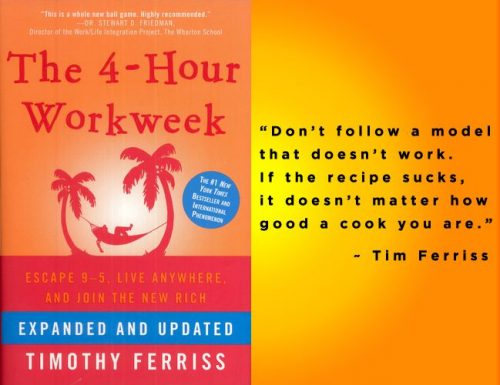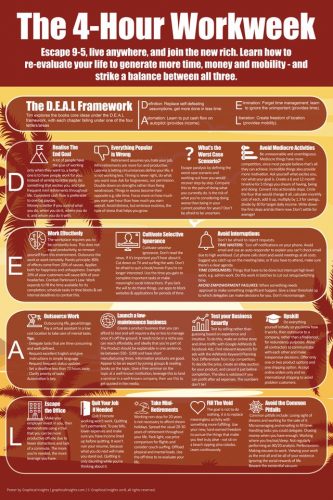I was a highly emotional person when I was pregnant with my first child. I had to add the word “highly” in that sentence. The reason was that regular mothers could cry while watching a specific commercial or cat video, and people would still say, “Aww, that’s cute!” It would seem like their maternal instinct was flaring up, thus causing them to be tearful all the time.
In my case, though, I cried about everything. For instance, my husband would open the door and help me out, and I would need a minute to wipe my tears away. He had been doing that ever since we started dating, but I only felt emotional about it when I was already pregnant. Other times, gestures as simple as handing me a paper napkin, giving me a pen, asking me what ice cream flavor I wanted, and handing the remote control to me so that I could choose what Netflix movie to watch would always make me tear up.

In all fairness to my husband, he never told me that I was weird or that I freaked him out. I was the one talking more about it because even I found it strange – and I was the one doing all that crying! He consoled me by saying that my supercharged emotions would eventually calm down after childbirth. That’s what I had been hoping for because I was not a crier before the pregnancy. It would be bad to say that I felt weak because of that. That’s not what I wanted my children to learn, but that’s how I felt when I was pregnant. I felt vulnerable, and that realization made me cry harder for days.
When I Learned The Meaning Of Too Much Wishful Thinking
Early in my third trimester, my doctor told me to get a C-section because the baby was too big. I am not the type of person to disobey my doctor’s orders to be “in” and try other delivery methods, so I said yes. Of course, it also meant that I did not need to go through labor to bring my baby into the world. That’s a win for me, for sure.
When my due date came, I woke my husband up early to be at the hospital at 7:00 a.m. The doctor was not supposed to come until 9:00 a.m., but I was too excited. While I enjoyed the last nine months and would love to do it all over again, I had not seen anything past my belly in the previous two months. If I didn’t stand in front of the mirror, I would not know what was happening down there. It made me more emotional, so I wanted to be done with my pregnancy at that time.
The birthing process was successful. I could not remember much of it because of the epidural, but my baby and I got out of the hospital with zero complications. I cried again when I saw my baby’s face and held her in my arms the first few times, but I assumed nothing of it. I merely charged it to the remnants of my intense emotions during pregnancy.
However, when two months passed and my emotions did not change for the better, I began to worry. I contacted a psychologist and told her about my symptoms. She then gave me an understanding smile and said that I could be dealing with postpartum depression and postpartum psychosis, which was common among new mothers.
Getting Diagnosed With The Condition
I had never heard of postpartum depression before, and I was utterly shocked to hear that I could be dealing with it. I was so sure that I would feel better after childbirth and that the intense emotions I experienced during pregnancy would subside, but I was wrong. I then asked the psychologist what I could do to manage my perinatal depression, and she gave me a few tips and advice.
First, she asked me to reach out and talk to other mothers who have gone through the same health depression experience. She said that it was important to know that I wasn’t alone and that I could find solace and comfort in talking to other mothers who had been in my shoes. She also suggested that I create a routine that would help me stay organized, which would include getting some proper rest, maintaining a balanced diet, and exercising regularly. Of course, treatment approach is open for consideration when symptoms of depression is at stake.
I knew that it would be difficult to follow a routine when I had a newborn in the house, but I decided to try it out. I had to take the necessary steps to ensure that I was able to take care of my baby and myself. The psychologist also suggested that I take some time for myself, which I found to be a great idea. I started doing yoga and meditation in the mornings, which helped me remain calm and relaxed even when I was feeling overwhelmed.
It helped me to better identify my triggers and recognize my emotions before they got out of control. I started taking time for myself to do things I enjoy such as reading, drawing, and listening to music. This helped me to stay in a positive frame of mind and take my mind off of negative thoughts and emotions.
Talking To My Husband Helped Too
I started talking to my husband about my depression and seeking his support. He was able to provide me with a different perspective on my emotions and help me to better understand my feelings. He was very understanding and patient with me, which really helped me to cope with my depression. He would often remind me of the good things in my life and help me to focus on the positive. He was also very supportive in taking care of our baby and helping me out with household chores.
Furthermore, I saw a therapist or a mental healthcare provider on a regular basis who helped me to learn more about my depression and how to deal with postpartum depression and manage it. With her help, I was able to better understand my emotions and get to the root of my chronic depression. During the talk therapy, she also helped me to develop strategies to help me cope with postpartum depression.
It took a lot of hard work and dedication, but I was able to overcome my postpartum depression and become the mother that I always wanted to be. I am still learning and growing as a mother and I am so grateful for the local support groups of my family member and friends. Now, I am more aware of my mental health problems and I am able to better manage my emotions. Postpartum depression is a serious issue, but I am living proof that you can overcome it.
What Are The Causes Of The Condition?
There can be two causes for postpartum depression. One is due to the physical changes that you have experienced. Once we give birth, our hormones experience a severe drop in levels. Meanwhile, other hormones produced by our thyroid gland can drop significantly, which can cause us to feel tired. Another reason for postpartum depression is that our emotions cause it. When we become new moms, we are sleep-deprived, and it can be pretty overwhelming. This can cause us to feel anxious, our self-esteem might be at a low point, and we might feel as if we have lost control.
How Long Does The Mental Condition Last?
Postpartum depression goes through three different phases. Each phase has its own time frame. In general, postpartum depression can last for months or years, depending on the person and the kind of appropriate treatment they are getting for this. It is advised that mothers experience symptoms of postpartum depression for more than two weeks. This is to avoid any further complications or issues, especially when the symptoms of new mothers’ postpartum depression show a lot of health risk factors.

How Can You Prevent Postpartum?
Postpartum depression is a serious issue affecting ten to fifteen percent of the female population after delivering a baby. Over time, there have been multiple studies that have shown many ways to prevent postpartum depression or the risk of developing postpartum depression. Right now, the best thing to do is to enroll in classes that are made available to teach us about crying patterns, sleeping patterns, and facing issues with a positive mindset, and all these classes can help you reduce the risk of developing postpartum depression.
Is Postpartum Considered A Disability?
Before you can know how to fix your postpartum depression, you must know what it is first. Postpartum is a kind of depression that affects women after they give birth. Since they cannot function without being hindered by their depression, this is considered a disability. You can claim a disability benefit for this under the Social Security benefits you have. You can seek help from a disability attorney so that you can process your claim.
Is It Normal To Cry A Lot After Giving Birth?
Being overcome by many different emotions all at once is normal, especially when you have just given birth. This is why crying a lot or maybe feeling overwhelmed by everything can be quite normal. However, once this feeling of sadness or emptiness continues to persist even after two weeks, you might be experiencing postpartum depression. Once this happens, make sure that you can seek help from a doctor to get the help you need.
Why Does It Smell Down There After Birth?
After we give birth, we have a certain type of discharge that can smell stale and musty. This discharge is referred to as Lochia. For the first few days, your Lochia will look like your regular period. After the initial discharge, the dark red color of your Lochia will turn lighter and lighter as time goes by. However, there are instances that it turns back to a darker color for a few days, but it should revert to a lighter shade which eventually stops.
Are You Fertile After Having A Baby?
The answer is yes, as early as three weeks after birth, even when your period has not started again and even if you are still breastfeeding. Ensure that you are still on your pills or any form of contraceptive to ensure that you do not get pregnant, especially the first time you have sex again after giving birth. You will still ovulate even after you have given birth, so that protection will be necessary.
Why Do You Have To Wait 40 Days After Giving Birth?
Many studies and research have been published that serve as evidence that we must wait for at least three weeks or more after giving birth. This is because when our placenta leaves our body, it can leave our uterus wounded, and it will require time for it to heal. Our blood vessels will close up the wound naturally by clotting and shrinking themselves. This process can take a long time, which is why we must wait.
Can Babies Feel When Their Mom Is Sad?
Yes, our babies can feel our emotions. Positive emotions will help give the child a happy environment as they grow, leading them to become healthier. Meanwhile, negative emotions can delay development and can decrease your baby’s health. Ensure that you can handle your emotions well during your pregnancy because your baby feels it, affecting their growth and health.

Can My Newborn Feel My Emotions?
The simple answer to this is yes. Babies can feel our emotions with rather surprising accuracy, and as with adults, emotions are very quickly able to affect our newborn babies, especially our negative emotions. Studies have confirmed that babies can determine the feelings of adults. However, this will take time before they can distinguish the emotion that adults are expressing. A study published in 2018 found that babies can determine emotions through facial expressions and tones of voice. This is because babies are developing their emotional abilities at a very early time in life.
Why Do New Moms Cry?
The most straightforward answer to this is hormones. Once a baby is delivered and the mother now begins to breastfeed, the hormone levels dramatically change. So, if you find yourself crying a few days after you give birth, you are not a lone case. This is a normal thing that many mothers experience after they give birth. There is eighty percent of first-time moms share this, and it is often referred to as “baby blues.”
How Do Moms Feel After Birth?
During the first few days of giving birth, new moms may feel many different emotions, such as feelings of extreme sadness or tearfulness, without really having a reason for these feelings. Other feelings they may feel are helplessness, crankiness, restlessness, and discouragement. The emotions that new moms may feel are due to the hormonal changes they are experiencing, the lack of sleep, and the overwhelming feeling of becoming a new mother.
How Long Do Blues Last?
Baby blues is area period after giving birth when we are filled with many negative emotions such as sadness, anxiety, and stress. Around 80 percent of women experience this, meaning that about 4 of 5 new mothers report experiencing the baby blues. This can last for anywhere between 10 to 14 days, and it can start happening around the second or third day after you give birth. This experience can be different for different women. So you should not expect to feel the same things as other women. If it persists longer than two weeks, make sure to consult with a doctor so he or she can assist the health conditions and provide proper health care.
How Long Does It Take For Hormones To Settle After Birth?
The best estimate for this is around six months postpartum or after birth. When hormones normalize, it usually is also the time when the postpartum period starts. This should not be a surprise because, according to studies, the hormonal changes in estrogen and progesterone will still be resetting to normal hormonal levels or pre-pregnancy hormonal levels. But again, every woman will experience things differently. One woman’s experience may not be the same as your experience or another woman’s experience. So another woman’s one to two weeks can be your three to four or another’s 6 months. This will be different for all of us.

How Can I Stabilize My Hormones After Pregnancy?
Our hormones start to settle back into the pre-pregnancy hormone levels or the baseline within the first week or two of postpartum. What you can do to stabilize your hormones is first, you have to practice daily detox rituals. You can start drinking juices filled with healthy vitamins and minerals, which will help your hormones go back to a stable level. Ensure that your blood sugar is at a good balance, and lastly, make sure that you are healing and waiting for that three-week period to be done.
Final Thoughts And Takeaway
Like forms of mental health conditions (severe mood swings, depression, anxiety, or bipolar disorder), postpartum depression did not have a cure. Taking antidepressants was out of the picture from the get-go because I was breastfeeding an infant. Thus, the mental health professional or psychologist prescribed counseling to me and connected me with other moms dealing with the same symptoms.
Little by little, my emotions became stable, and I felt more equipped than ever to become a mother.
FAQs
What is the 5 5 5 rule for postpartum recovery?
What are the 3 symptoms of postpartum?
What happens if PPD is left untreated?
What is the 6-week postpartum rule?
What do I need to survive postpartum?







